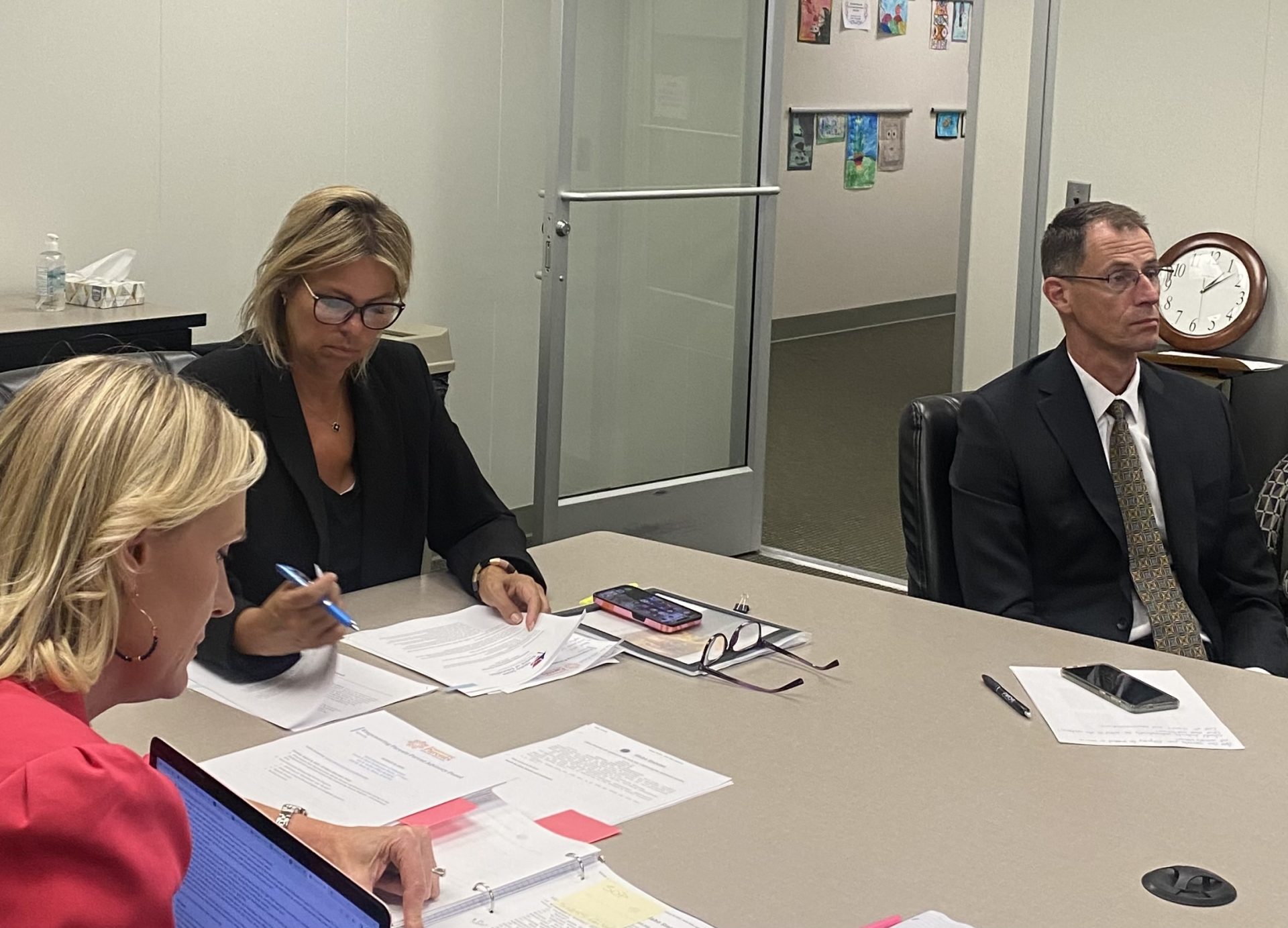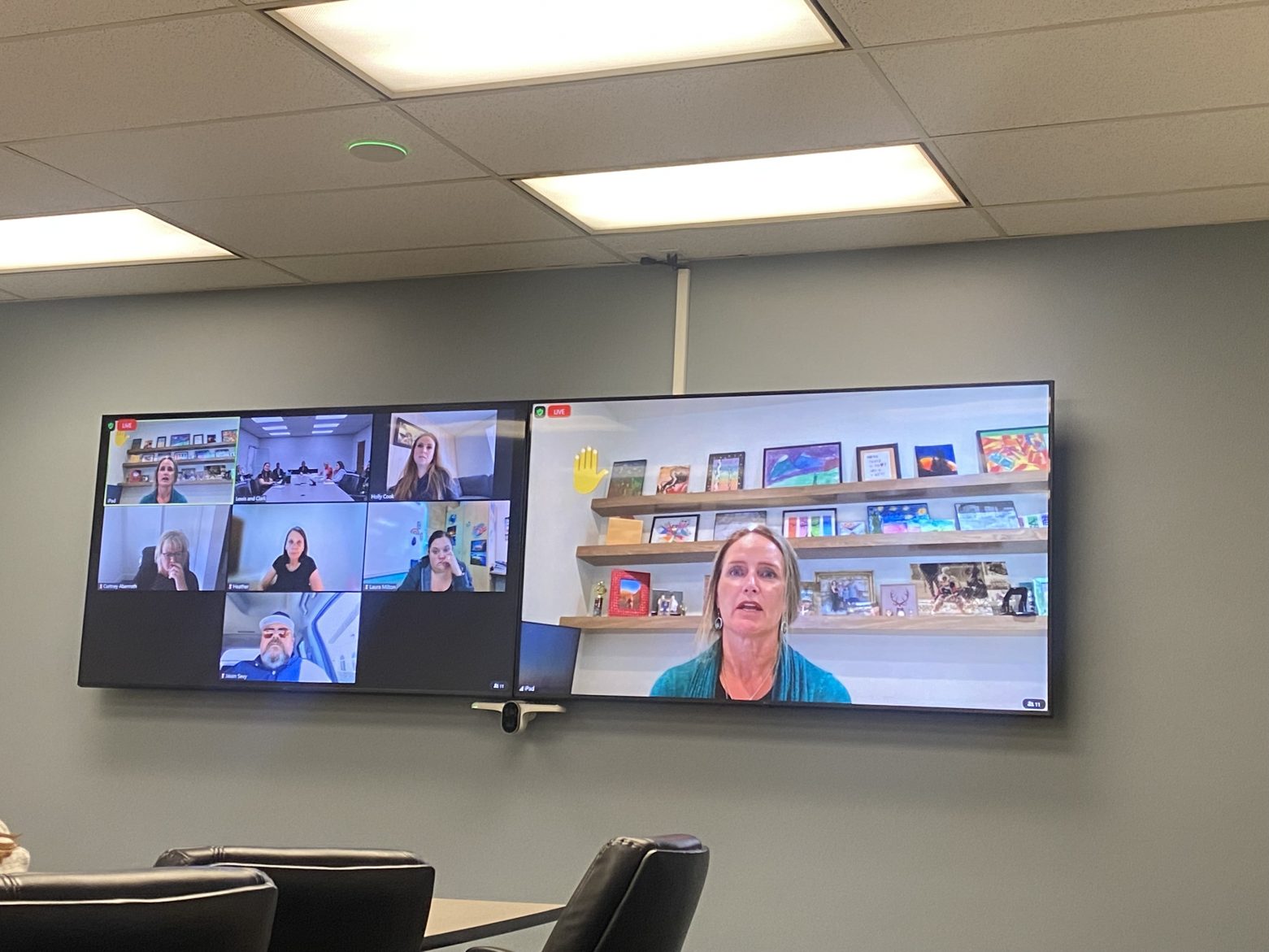Idaho’s seven-member Empowering Parents advisory panel met for a work session Tuesday afternoon, a prelude to next week’s meeting in Rexburg and the group’s October deadline to present recommendations to the State Board of Education.
Joined by Sen. Lori Den Hartog, an original sponsor of the Empowering Parents legislation, the parental committee identified a few mismatches between the original intent of the legislation and the current implementation of the program during Tuesday’s meeting.
Den Hartog, R-Meridian, gave the group a synopsis of the original intent behind Empowering Parents: to support families during COVID as they adapted to unprecedented education plans.
Empowering Parents started as Strong Families, Strong Students — a separate program that utilized federal emergency relief money to cover families’ out-of-pocket costs for technology, books and other education materials during the pandemic.
In 2022, the program was renamed Empowering Parents, given an updated model, and the intent shifted toward combatting COVID learning loss, supporting at-risk students and bolstering education customization around the state. Under the current program, families can receive up to $3,000 for extraneous education costs.
But the program’s launch has been rocky. According to a June 30 State Board review, around 1% of Empowering Parents purchases were ineligible, and another 6% of purchases fall into a gray area — they may or may not be eligible, and it’s part of the parent advisory group’s role to determine those parameters.
Den Hartog addressed that gray area Tuesday.
“We had envisioned…something that was really flexible. Maybe what has caused you some frustration, and maybe has caused the State Board and our vendor some frustration as well, is the open-endedness of some of those categories,” said the senator. “But the reason for that was, we didn’t know all of the ways that parents might want to use the funds to help their students…We didn’t know all of the needs and all of the creative ways…that people might try to access educational opportunities for their kids.”
The senator also addressed public schools’ role in Empowering Parents.
According to Idaho Code, said State Board Director Matt Freeman, only nonpublic school students can access services from public schools through Empowering Parents. This has limited what services public schools can offer through the online vendor, and who can access them.
“The statute has really bound us,” the State Board’s Empowering Parents coordinator Heather Zeitlin told Den Hartog and panel members.
And that runs contrary to what Den Hartog wants.
“We really envisioned individual teachers being able to be service providers on the platform,” she said. “If they were going to provide tutoring outside the school day for some extra money, and/or for students that they knew needed or wanted some additional support. We picture school districts being vendors on the platform, so if there…were extra items…school fees or uniform fees…The statute itself, obviously, is set in place, but we envision being able to come back to it in a future legislative session and tailoring and giving some more parameters around that.”
Den Hartog went on to address questions about eligible expenses and the intent of the law from panel members.
Amy Henry, a panel member from Nampa, asked whether fees at her kids’ homeschool co-op could be eligible for an Empowering Parents grant. Den Hartog’s answer: yes — if the school registers and is approved as a vendor on the Odyssey website.
“The scenario you’re describing is exactly something we would envision those funds could be spent for,” said Den Hartog. “That’s…one of the beauties in the design of both the original Strong Families, Strong Students and Empowering Parents…it doesn’t matter where the student is or where they’re accessing their education, they have access to these funds.”
In a similar vein, state superintendent Debbie Critchfield (the panel’s nonvoting chairwoman) asked about private school tuition and fees — a hot-button issue that yielded several attempts at legislation during the recent session, none of which were successful.
Den Hartog confirmed Tuesday that private school tuition is not an allowable expense under current Empowering Parents legislation, but non-tuition fees and other costs are eligible if the private school, or a private school teacher, were an approved vendor on the platform. But the senator would like to eventually see tuition approved as an eligible expense as well.
“That was one of the negotiations, and frankly one of the concessions, that Representative Horman and I made,” she said. “Would we like to see tuition as an allowable expense in the future, personally, as the two legislators championing it? Yes. Do we recognize that $1,500 doesn’t pay a full tuition anywhere? Yes… Politically, I’m interested in that, but…I don’t know that that’s something that can get through the Legislature. So, there are all things we want, but we still have to get through a process.”
In March, Horman and Den Hartog introduced a plan before lawmakers to add an avenue for private tuition under Empowering Parents, but the bill was held in committee.
Closing out Tuesday’s meeting, Critchfield questioned the parent panel about tuition, but didn’t receive a clear answer. Panelists did mention in-state classes and camps, homeschool co-op fees, private and public school fees, and transportation as expenses to consider for future eligibility.
The panel also briefly touched on the Empowering Parents appeals process, which they’ll continue discussing at its Aug. 17 meeting in Rexburg. The committee also plans to field further questions to the online platform vendor, Odyssey, and discuss draft panel recommendations at the next meeting.


